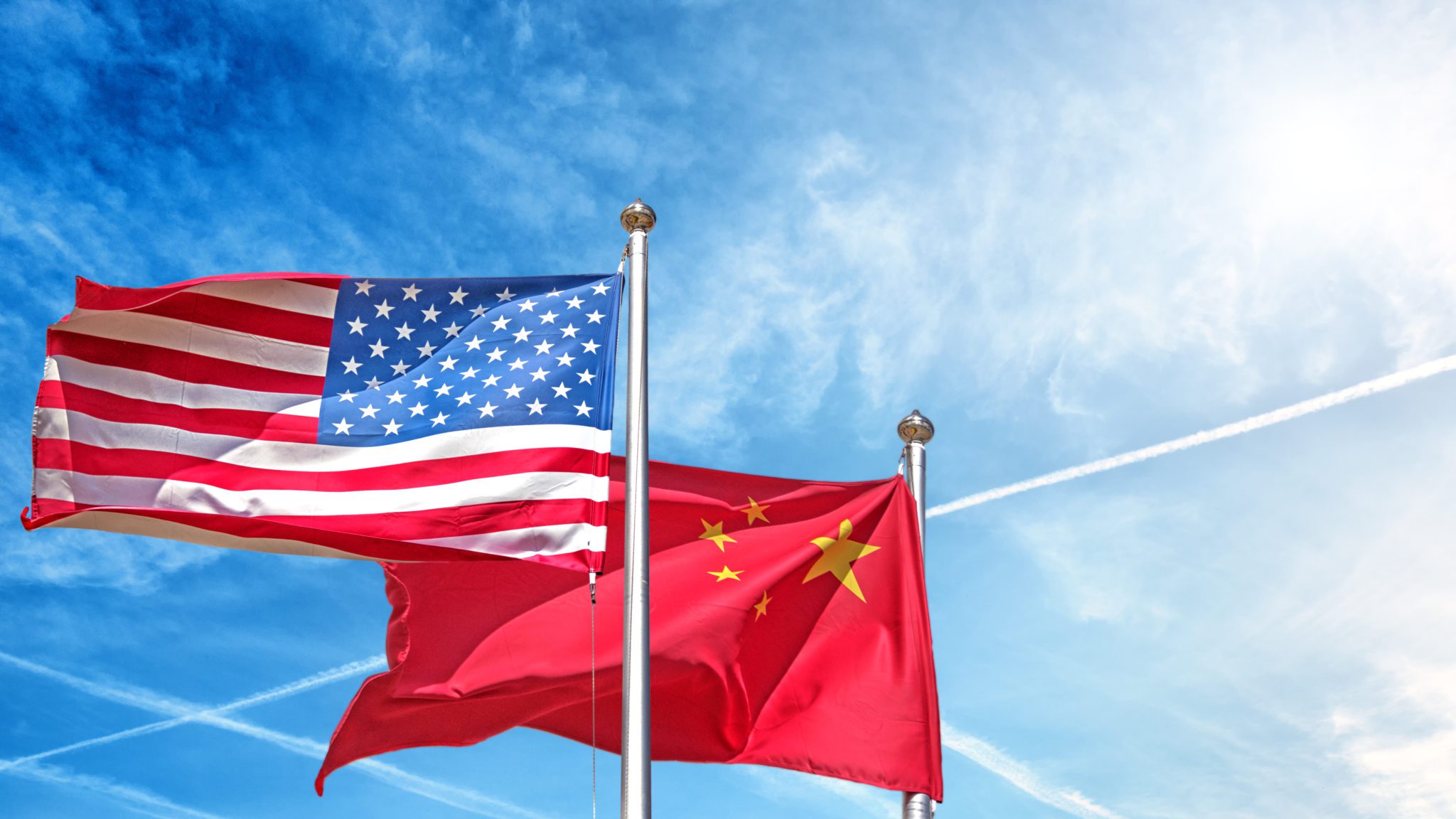Patriotic Americans could learn a thing or two from those folks across the Pacific.
In the United States, millennials and gen Zers get a bad name. They are little more than narcissists and snowflakes, we’re told. Although I loathe the term “millennial,” I must admit that I am indeed one. Do I happen to be a narcissistic snowflake? Here, I must plead the fifth.
However, all is not lost. A new generation composed of conscientious, morally upright individuals has emerged. This generation, aptly labeled generation N, puts the concerns of their country, rather than their own, first. The “N” here stands for nationalism. Sadly, these nationalists are located in China, not the U.S.
In an intriguing piece for the South China Morning Post, Jun Mai and Amber Wang discuss these nationalists in great detail. Young and unapologetic, this generation is hyper-vocal and hyper-nationalistic. Inspired by the Chinese Communist Party, generation N are loyal disciples, staunch defenders of their country, and they don’t care who knows. In fact, they want the world to know how great China really is.
For millions of people outside of China, “nationalist” has become one of the dirtiest words imaginable. To voice one’s support for nationalist policies is to be deemed irredeemably racist. Only xenophobes and “deplorables” could ever utter it in a positive manner. The president of Germany, no doubt aware of his country’s rather controversial past, once called nationalism an “ideological poison.” It’s not. The only “poison” involves the misconceptions around nationalism.
After all, what is nationalism but one’s desire to identify with his or her own nation? It is possible to love your country without loving those in power. I’m sure many readers love the U.S. but have no intention of sending President Biden a Christmas card. By love, I don’t mean a crying John Boehner, flag-hugging kind of love. Perhaps pride is a better word. One can be proud of one’s country without being proud of its leaders.
Nationalism, by its very definition, involves loyalty to one’s nation, rather than any particular ideological group. Contrary to popular belief, nationalism, in its purest form, involves unity, rather than division. Here, it is important to differentiate between national conservatism and national populism. The latter I have little interest in discussing, as in my judgment it is low-hanging fruit, where demagoguery merges with opportunism. By emphasizing and exploiting an us versus them narrative, populists divide a nation.
National conservatism, on the other hand, is certainly worth discussing, as it seeks to promote traditional values. It appeals to the most human of qualities: the idea of traditional family values, religion, the importance of marriage, and the importance of community. With the atomization of society, all of these values are disappearing from American society. Now, everything appears to be viewed through an intersectional prism. Secular sectarianism reigns supreme. Who benefits when the U.S. is so divided? Not your average American, that’s for sure.
In the aforementioned South China Morning Post piece, Mai and Wang document the ways in which this new generation of nationalists show their support for China. They “no longer take to the street to vent their anger against foreign governments and businesses,” write the authors. Instead, all their venting takes place online. For hours on end, these tech-savvy nationalists scour the internet. Any commentator who makes “unacceptable” references to Hong Kong or Taiwanese sovereignty, either deliberately or otherwise, is castigated.
What has fueled this rise in Chinese nationalism? According to the authors, there exists a positive correlation between China’s international growth and the pride felt by generation N. One must remember that the new nationalists have never known a poor China; all they know is the good life (well, as good as life can be living under the CCP). They are proud of China’s high-speed railways, the country’s impressive highways, and its relentless “pace of urbanization.” Why should any of this matter to citizens of the United States?
Because a more united China is a more potent China. Having lived in the country for an extensive period of time, I am not exaggerating when I say the following: The animosity towards all things American is palpable. I have spoken with Chinese people, both young and old, who view the United States as the ultimate enemy. Yes, one can argue that their pride is wholly misplaced. Indoctrinated from an early age, gen N has been raised on a steady diet of disinformation. Although this is indeed true, it doesn’t matter. China, for all its flaws (and there are many), is becoming more united.
The United States, on the other hand, hasn’t been this divided in decades. In 2020, American pride fell to a 20-year low. Only 47 percent of Americans say they are “extremely proud” of their nationality. Some readers have criticized me in the past for emphasizing the threat posed by China. More specifically, the threat posed by the CCP. But I make no apologies for emphasizing the truth. The CCP has stolen the data of more than 80 percent of Americans. With Beijing doing all in its power to foster even greater levels of national pride, will China become more or less of a threat? Anyone with a functioning brain knows the answer to this rather troubling question.
What is the antidote to Chinese collectivism? Greater unity at home. Again, I am not talking about kumbaya, flowers in our hair nonsense. I am talking about genuine unity. According to Gallup, since 2005, the start of George W. Bush’s second presidential term, “fewer than 60% of Americans have expressed extreme pride in being American.” Each year, fewer Americans identify with the country they call home. A narrative based around civic nationalism, rather than ethnic nationalism, must be fostered. To quote Eric Weinstein, the goal should be to create a society in which you “have no desire to burn the flag you have every right to burn.”
This, I’m sure, sounds utterly utopian, or even dystopian to some more left-leaning readers, but what’s the alternative? Continue down this path of self-destruction. If the U.S. is to genuinely compete with China, then fundamental changes are needed at home. This starts by putting America—and Americans, all Americans—first.
To be clear, I am calling for a civic nationalism, not ethnic nationalism. The former is a wholly inclusive form of nationalism. It promotes traditional American liberal values such as freedom, tolerance for others, and respect for individual rights. The latter, meanwhile, more commonly referred to as ethnonationalism, merges the ideas of nation and nationality with ethnicity. Civic nationalism is to be celebrated; ethnonationalism, meanwhile, is to be condemned, repeatedly and vociferously.
As the scholar Gustavo de la Casas has noted in the past, nationalism, in its purest form, is nothing more (emphasis mine) than a sense of unity “with a group beyond one’s immediate family and friends.” In an age of BLM protests and critical race theory syllabi, isn’t this exactly what the United States needs? “The bad rap on nationalism,” according to de la Casas, “relies almost exclusively on cherry-picked exceptions.” Not surprisingly, as nationalistic citizens are more likely to care about people outside their immediate bubbles, “they are less likely to break the law and violate the rights of others.”
In places like New York and Minneapolis, where hate crimes and shootings are an all too regular occurrence, many couldn’t care less about laws or violating the rights of others. Countries with higher levels of nationalism don’t just have more respectful, law abiding citizens, they “tend to have a stronger rule of law.” Nationalism gets a bad name, but it is consistently and positively linked with political, economic, and social health.
Which brings us back to China, where the Chinese regime focuses on instilling greater levels of nationalism among its citizens. The U.S. government should take note. A more united country, where the values of American citizens are put first, is a stronger one. To compete with China, strength and unity are most definitely required. The question, of course, is what will unite a renewed American nation?
John Mac Ghlionn is a researcher and essayist. His work has been published by the likes of National Review, New York Post, South China Morning Post, and the Sydney Morning Herald. He can be found on Twitter at @ghlionn.
Latest Articles
Note: This article have been indexed to our site. We do not claim ownership or copyright of any of the content above. To see the article at original source Click Here














